Indigenous Governance Database
Governance
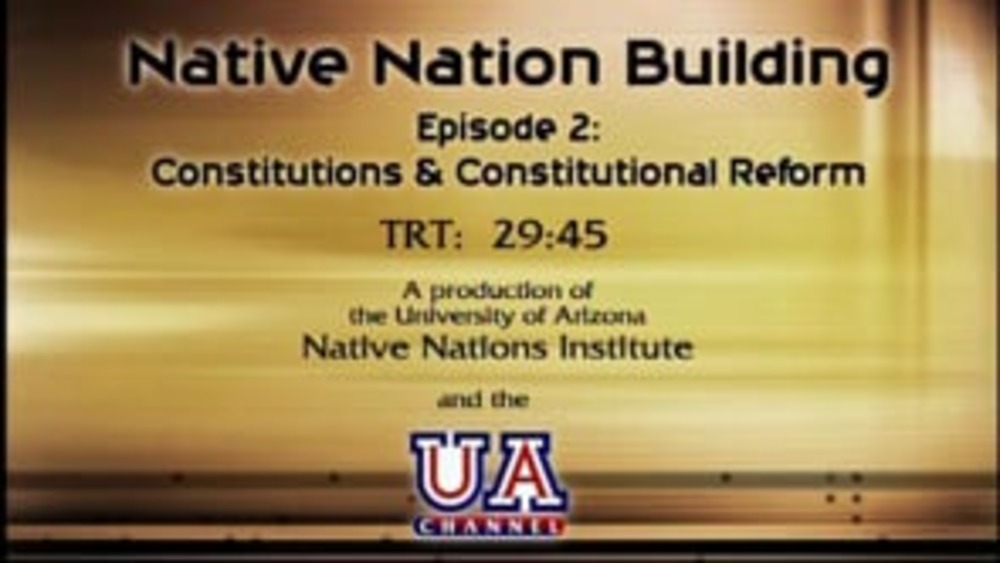
Native Nation Building TV: "Constitutions and Constitutional Reform"
Guests Joseph P. Kalt and Sophie Pierre explore the evidence that strong Native nations require strong foundations, which necessarily require the development of effective, internally created constitutions (whether written or unwritten). It examines the impacts a constitution has on the people it…
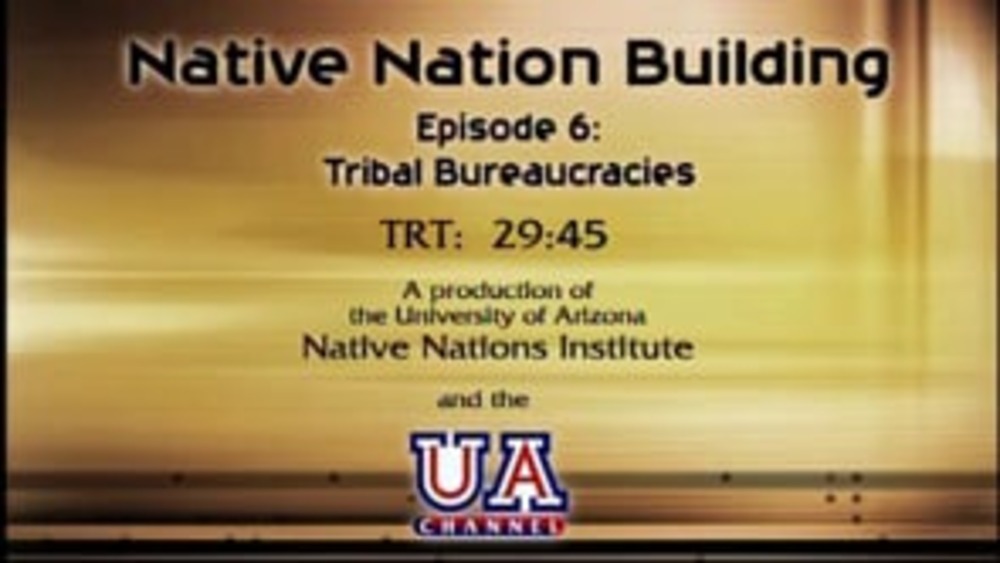
Native Nation Building TV: "A Capable Bureaucracy: The Key to Good Government"
Guests Urban Giff and Joan Timeche explain that good governance requires effective, transparent and accountable bureaucracies. The segment demonstrates how clearly defined organizational structures and roles and responsibilities help make things work and get things done, and how their absence…
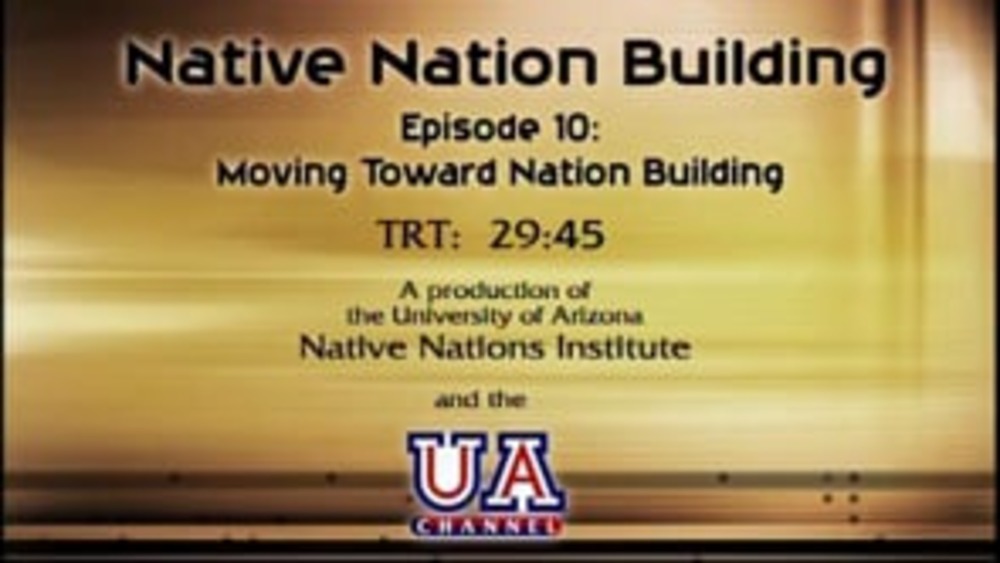
Native Nation Building TV: "Moving Towards Nation Building"
Manley A. Begay, Jr. and Stephen Cornell contrast the two basic approaches to Indigenous governance -- the standard approach and the nation-building approach -- and discusses how a growing number of Native nations are moving towards nation building. It provides specific examples of how implementing…
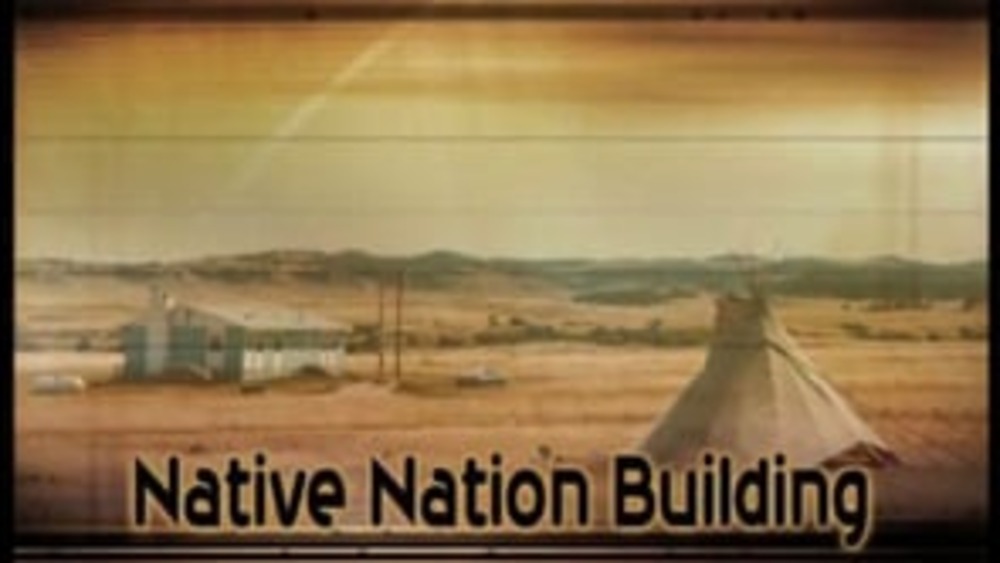
Native Nation Building TV: "Introduction to Nation Building"
Guests Manley Begay and Stephen Cornell present the key research findings of the Native Nations Institute and the Harvard Project on American Indian Economic Development. They explain the five keys to successful community and economic development for Native nations (sovereignty or practical self-…
Peterson Zah and Manley A. Begay, Jr.: Strategic Thinking and Planning: Navajo Nation Permanent Trust Fund
Former Navajo Chairman and President Peterson Zah and NNI Faculty Chair Manley A. Begay, Jr. discuss the role of strategic vision and planning in the establishment and cultivation of the Navajo Navajo Permanent Trust Fund, and stress the need for Native nations to forge a long-term vision for…
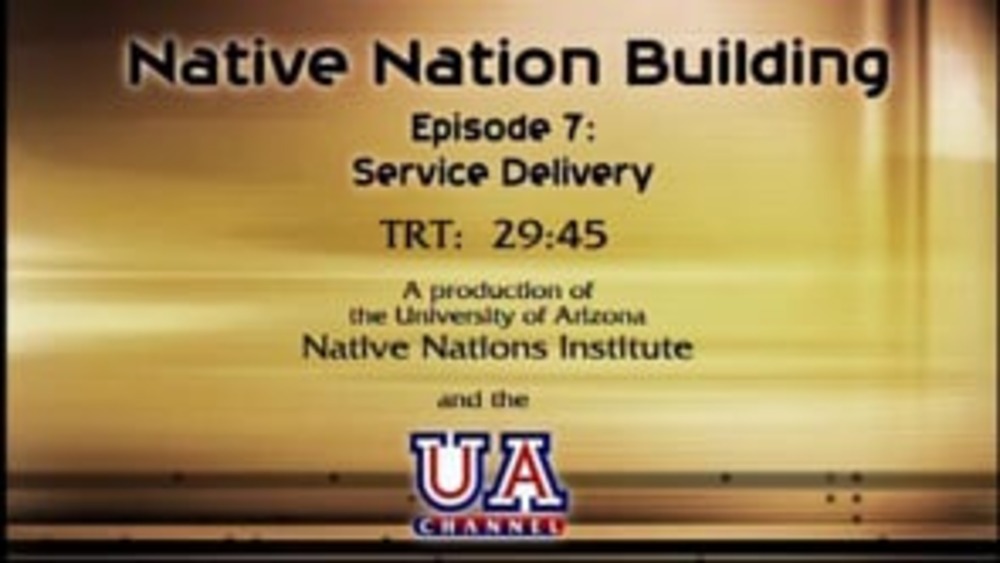
Native Nation Building TV: "Tribal Service Delivery: Meeting Citizens' Needs"
Guests Eddie Brown and Karen Diver discuss tribal program and service delivery across Indian Country. They examine the unproductive ways services and programs have been administered in many Native communities in the past, and the innovative mechanisms and approaches some Native nations are…
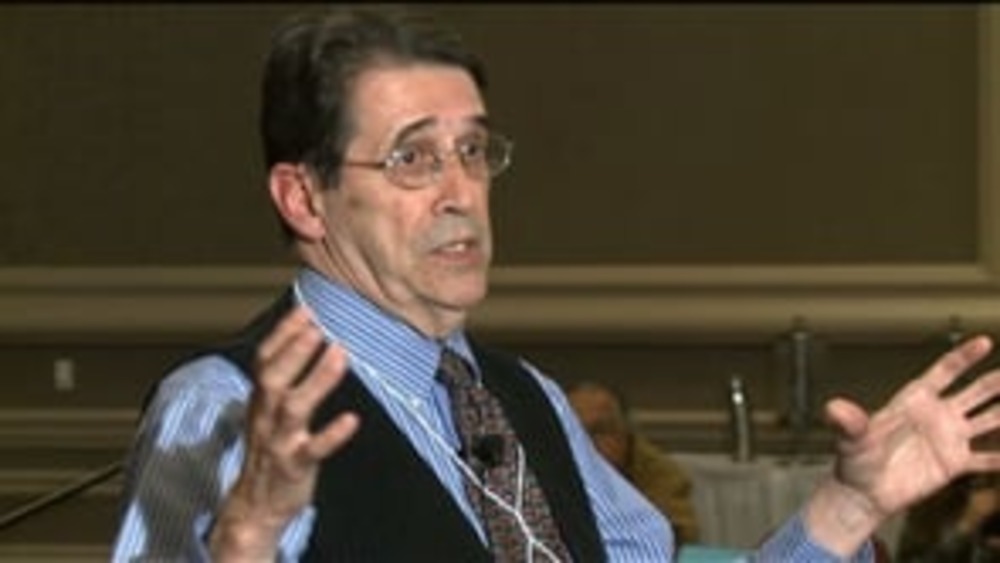
Frank Pommersheim: A Key Constitutional Issue: Dispute Resolution
University of South Dakota Professor of Law Frank Pommersheim discusses the key constitutional issue of dispute resolution and presents three cases demonstrating how tribes are endowing their constitutions with legitimacy through the careful, thoughtful resolution of disputes.
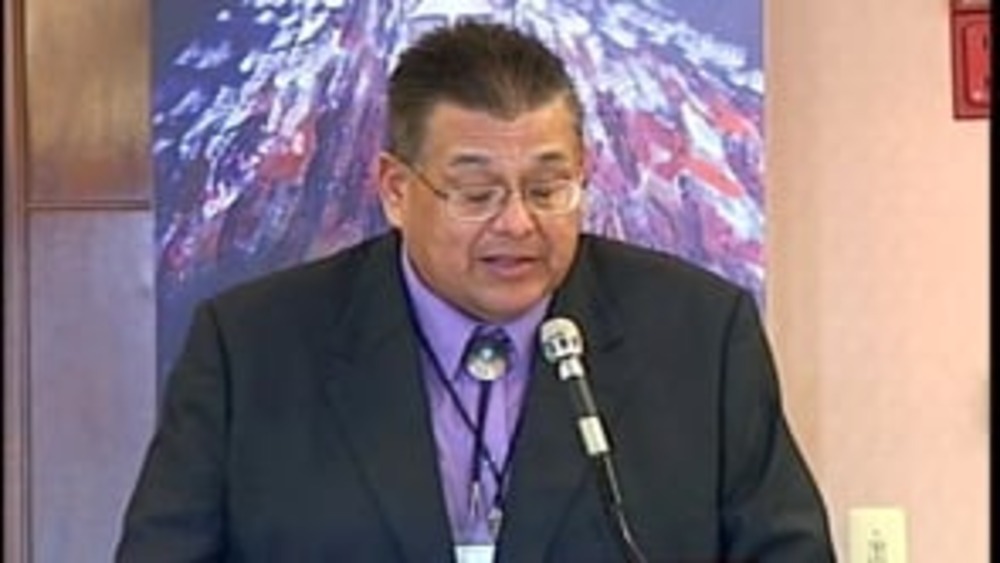
Honoring Nations: Allen Pemberton: The Red Lake Walleye Recovery Project
Red Lake Chippewa Natural Resources Director Allen Pemberton provides an overview of the Honoring Nations award-winning Red Lake Walleye Recovery Project, and illustrates how the program reflects the benefits of Native nations taking over control of their own affairs from the federal government.
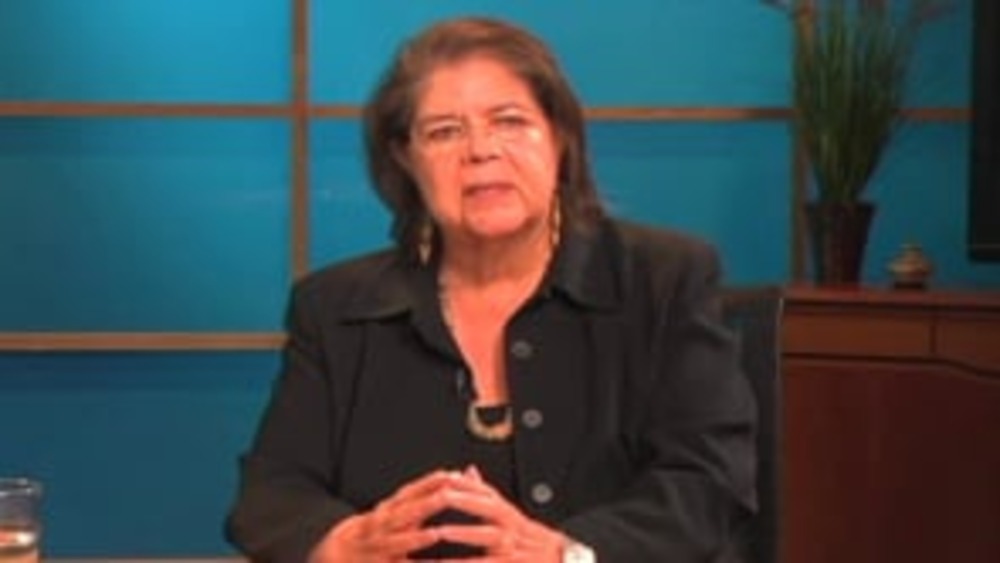
Wilma Mankiller: Governance, Leadership and the Cherokee Nation
As part of its ongoing interview series "Leading Native Nations," the Native Nations Institute (NNI) interviewed Wilma Mankiller, the late and former Chief of the Cherokee Nation, in September 2008. In the interview, she discussed her compelling personal story as well as the challenges the Cherokee…
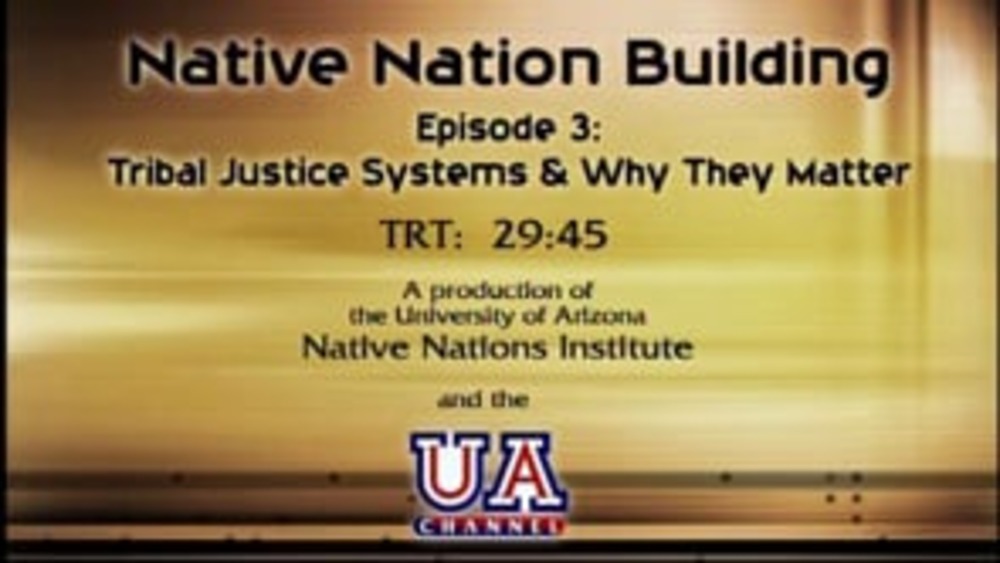
Native Nation Building TV: "Why the Rule of Law and Tribal Justice Systems Matter"
Guests Robert A. Williams, Jr. and Robert Yazzie discuss the importance of having sound rules of law and justice systems, and examine their implications for effective governance and sustainable economic development. They explore these issues and their role in creating a productive environment that…
Regis Pecos: The Why of Making and Remaking Governing Systems
Former Cochiti Pueblo Governor Regis Pecos shares his thoughts about the ultimate purpose of constitutions, governments and governance from a Pueblo perspective, and argues that constitutional reform presents Native nations with a precious opportunity to reclaim and reinvigorate their cultures and…
NNI Forum: Asset Building for Indian Country
The Native Nations Institute for Leadership, Management, and Policy (NNI) at the University of Arizona in Tucson, Arizona convened a panel of leading experts to discuss the fundamental obstacles standing in the way of asset building in Native communities, and the innovative strategies that Native…
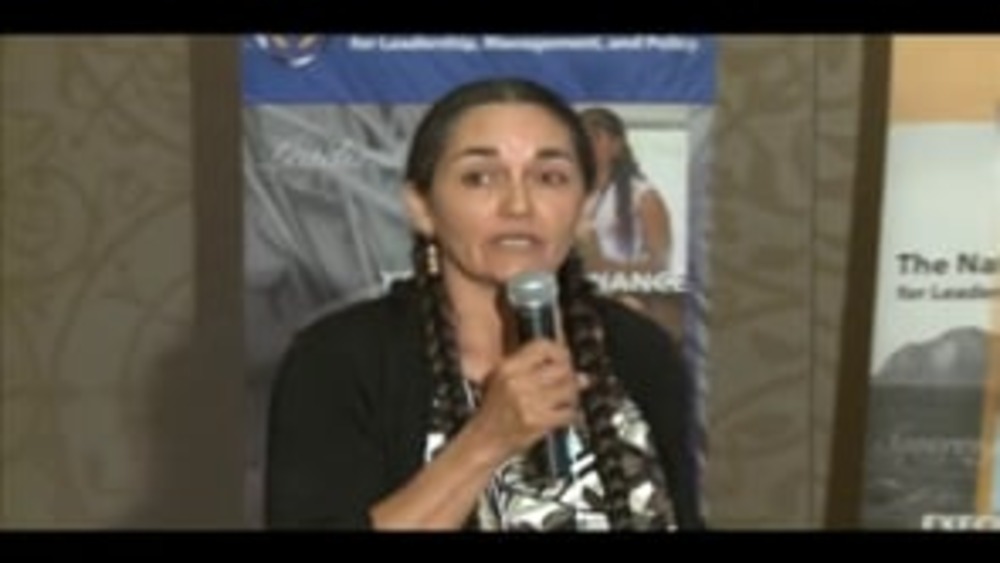
Gwen Phillips: Reforming the Ktunaxa Nation Constitution: What We're Doing and Why
Gwen Phillips, Director of Corporate Services and Governance Transition for the Ktunaxa Nation, discusses how Ktunaxa is using the British Columbia treaty process to reconceive and restructure its governance system from the ground up in order to revitalize Ktunaxa culture, language and core values…
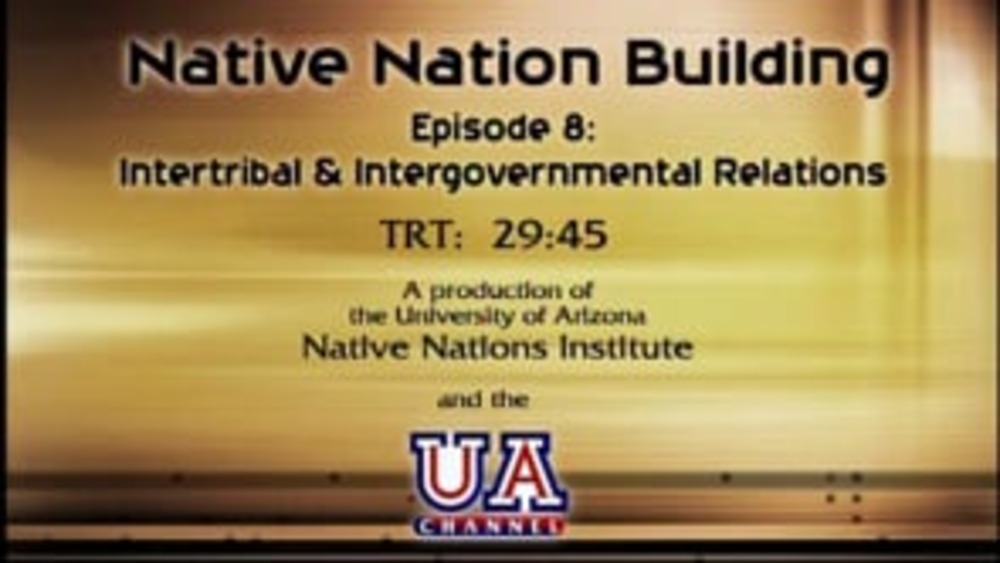
Native Nation Building TV: "Intergovernmental and Intertribal Relations"
Guests Jaime Pinkham and Sarah Hicks focus on Native nations’ efforts to enhance their relationships with other governments as a way to advance their nation-building objectives. It details how some Native nations are forging mutually beneficial intergovernmental agreements, and chronicles the many…
Todd Hembree: A Key Constitutional Issue: Separations of Powers
Cherokee Nation Attorney General Todd Hembree discusses the critical role of separations of powers in effective Native nation governance, and provides an overview of how the Cherokee Nation instituted an array of separations of powers in the development of their new constitution, which was ratified…
Honoring Nations: Floyd "Buck" Jourdain: Sovereignty Today
Red Lake Band of Chippewa Former Chairman Floyd "Buck" Jourdain defines sovereignty as the aggressive and proactive exercise of a nation's sovereign powers, and illustrates how his nation takes this approach in advancing its own priorities and dealing with other sovereign governments.
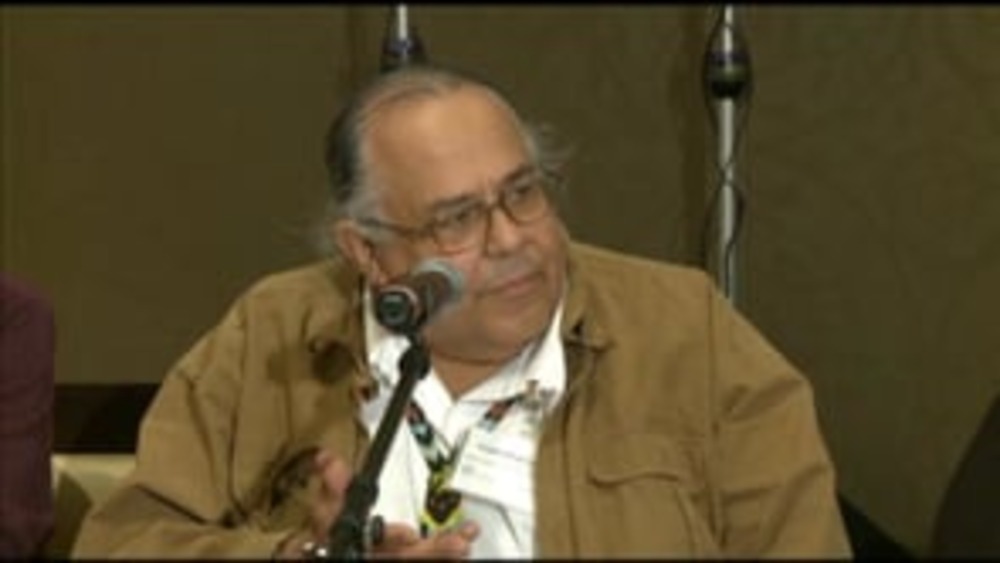
Constitutional Reform: A Wrap-Up Discussion (Q&A)
NNI "Tribal Constitutions" seminar presenters, panelists and participants Robert Breaker, Julia Coates, Frank Ettawageshik, Miriam Jorgensen, Gwen Phillips, Ian Record, Melissa L. Tatum and Joan Timeche field questions from the audience about separations of powers, citizenship, blood quantum and…
Honoring Nations: Michael Thomas: Sovereignty Today
Former Mashantucket Pequot Chairman Michael Thomas provides his definition of what tribal sovereignty means in the 21st century, and stresses the importance of Native nations examining and reconnecting with their traditional governance principles as they work to exercise sovereignty effectively.
NNI Forum: Tribal Sovereign Immunity
Tribal sovereign immunity has far-reaching implications, impacting a wide range of critical governance issues from the protection and exertion of legal jurisdiction to the creation of a business environment that can stimulate and sustain economic development. Native Nations Institute (NNI) Radio…
Honoring Nations: Joseph P. Kalt: Rebuilding Healthy Nations
Harvard Project Co-Director Joseph P. Kalt provides a general overview of the Honoring Nations program and illustrates how people all over the world are learning from the nation-building examples set and the lessons offered by Native nations in the United States.
Pagination
- First page
- …
- 20
- 21
- 22
- …
- Last page
